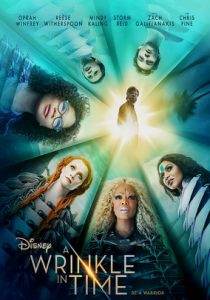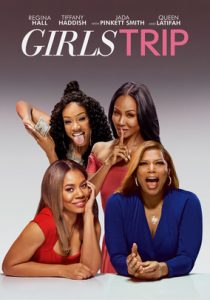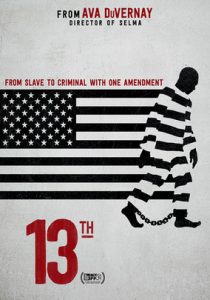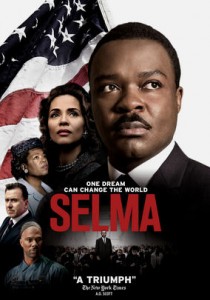A Wrinkle in Time- 2018
Director Ava DuVernay
Starring Storm Reid, Oprah Winfrey, Reese Witherspoon
Scott’s Review #788
Reviewed July 16, 2018
Grade: C
A Wrinkle in Time (2018) is a film I had high hopes for, given the enormous marketing push, first-rate cast, and especially the acclaimed female director involved with the project, Ava DuVernay (Selma, 13th).
Additionally, having admired the 1962 novel, I expected a rich, earthy, and mysterious experience. Sadly, whether it be a “too many cooks in the kitchen” situation given the star power involved, or some other factors leading to a disconnect, this film disappointed me.
It’s not terrible, but it suffers from miscasting, too much CGI, and a story that is not very compelling.
Thirteen-year-old Meg (Storm Reid) is having a tough time in school. Smack dab in the “awkward phase,” she is picked on by schoolmates because her father (Chris Pine) has disappeared, presumably having ditched the family.
In reality, he is a scientist transported to another world after solving the question of humanity’s existence.
After Meg and her family are visited by a strange woman named Mrs. Whatsit (Reese Witherspoon), Meg, her little brother Charles Wallace, and Meg’s crush, Calvin, time-travel to find a way to save her father.
Fans who have read the fantastic novel written by Madeleine L’Engle will most certainly be disappointed since many details of the film are vastly different from the written page.
DuVernay attempts to take the film out of the 1960s and into 2018 (I have no issue with that), but the film feels so slick and modern with the visual elements and heavy use of CGI that the story suffers enormously.
The film is gorgeous, especially in the sweeping outdoor scenes, but in this case, too many bells and whistles spoil A Wrinkle in Time.
The three strange women characters, Mrs. Whatsit, Mrs. Who (Mindy Kaling), and Mrs. Which (Oprah Winfrey), are completely butchered. In the novel, each is portrayed as peculiar, mysterious, and similar to witches: frumpy, awkward, yet lovable.
In the film, however, they are colorful, glamorous, and empowered, but lack uniqueness or intrigue.
I am all for female empowerment, but the characters just felt wrong.
Kaling is fine in the most minor role, but in the case of Witherspoon and Winfrey, it appears to be a case of “we have big stars, let’s find roles for them.” A tough sell with Mrs. Which is to think of Oprah as anyone other than….well, Oprah!
Witherspoon’s attempts to be goofy and the comic relief of the film do not work.
The casting of newcomer Storm Reid is lackluster. I have no issue with the character of Meg being changed to bi-racial, I feel that’s a plus in the modern age. However, the actress is not the greatest, appearing both sullen and wooden in various scenes.
Nor does she have any chemistry with her love interest, Calvin.
This is a shame since the theme of young love would have been a nice addition to the film and was a coming-of-age element in the novel.
At the risk of being overly critical, A Wrinkle in Time is not a total disaster either. The progressive and heroic message of the overall film is quite inspiring if kids watch the film (and since it is Disney-produced and heavily advertised, I can see no reason why they wouldn’t), they will be exposed to a nice message of good conquering evil.
On a side note, the villain is safe and hardly conjures up much fright, so parents need not worry about the film being too scary.
With heaps of buzz and anticipation regarding A Wrinkle in Time (2018), the film seemed poised to become a blockbuster hit and a great spring flick. Instead, critics and audiences alike have largely derided it.
With creative genius, star power, and a considerable budget, something ran amok as the final product is fair to middling.
Let’s hope director Ava DuVernay gets her groove back with her next project- I expected more.



